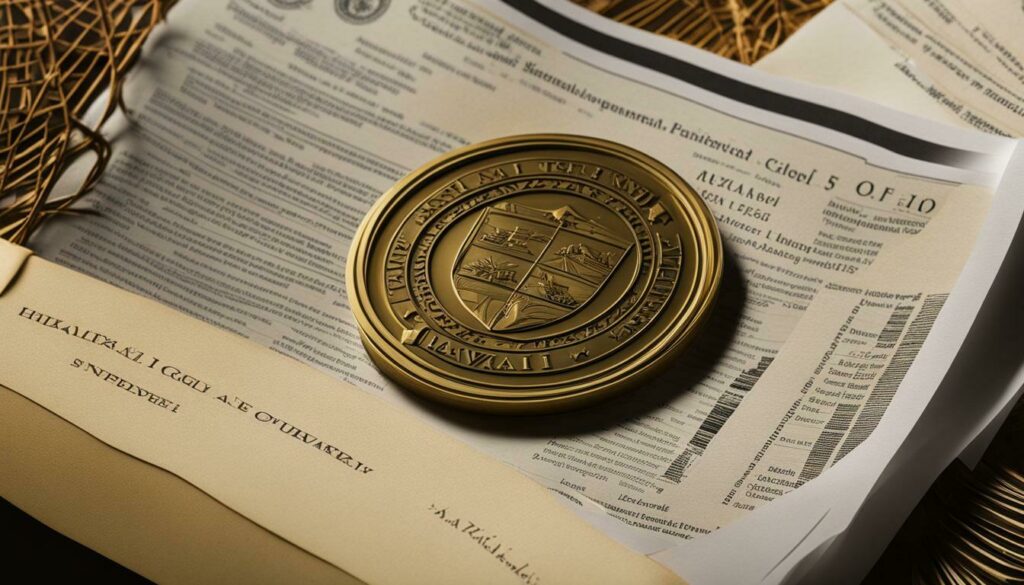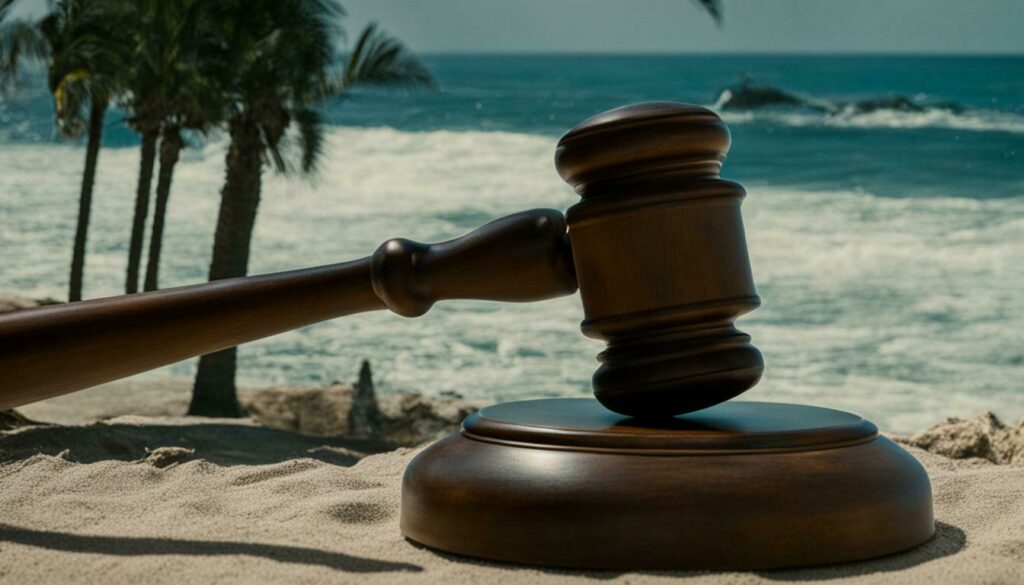When responding to a subpoena in Hawaii, it is crucial to understand your rights and responsibilities to ensure a compliant and legally sound response.
Every subpoena should be issued by the clerk of the circuit court and include the name of the court and the title of the action. It should command your attendance and testimony at a specific time and place. If the subpoena also requires document production, it can be modified or quashed if it is deemed unreasonable or oppressive. The subpoena can be served by the sheriff, deputy sheriff, or any other person who is not a party and is at least 18 years old.
Upon receiving a subpoena, you should receive a copy and be provided with the fees for attendance and mileage. It is your responsibility to provide the requested documents or electronically stored information in the form in which it is ordinarily maintained, unless it is not reasonably accessible due to undue burden or cost.
If you have a claim of privilege or protection, it should be explicitly made and described to allow the opposing party to contest it. Failure to comply with a subpoena without adequate excuse may result in being held in contempt of court.
- Understand your rights and responsibilities when responding to a subpoena in Hawaii.
- Subpoenas should be issued by the clerk of the circuit court and state the name of the court and title of the action.
- Subpoenas can be modified or quashed if they are deemed unreasonable or oppressive.
- Serve the subpoena can be done by the sheriff, deputy sheriff, or any other person who is not a party and is at least 18 years old.
- Provide the requested documents or electronically stored information, unless it is not reasonably accessible due to undue burden or cost.
Understanding Hawaii Subpoena Laws and Legal Process
To navigate the intricacies of responding to subpoenas in Hawaii, it is essential to have a clear understanding of the state’s legal process and the specific laws governing subpoenas. When it comes to issuing subpoenas, every subpoena should be issued by the clerk of the circuit court and must state the name of the court and the title of the action. This ensures that the subpoena is valid and properly authorized by the court.
Once a subpoena is issued, it commands the person to attend and give testimony at a specific time and place. If the subpoena also requires the production of documents, the court may quash or modify it if it is deemed unreasonable and oppressive. This protects individuals from overly burdensome or unfair requests.
The actual service of a subpoena is another important aspect of the legal process in Hawaii. According to the rules, the subpoena can be served by the sheriff or deputy sheriff, or by any other person who is not a party and is at least 18 years old. It is vital that the person served with the subpoena receives a copy and is provided with the fees for their attendance and mileage. This ensures that individuals are compensated for their time and expenses associated with complying with the subpoena.
| Key Points: | Understanding Hawaii Subpoena Laws and Legal Process |
|---|---|
| Subpoena Issuance | Subpoenas should be issued by the clerk of the circuit court, stating the court’s name and the action’s title. |
| Command to Attend | A subpoena commands the person to attend and give testimony at a specified time and place. |
| Quashing or Modifying Subpoenas | If a subpoena is deemed unreasonable and oppressive, the court may quash or modify it. |
| Methods of Subpoena Service | A subpoena can be served by the sheriff, deputy sheriff, or any other authorized individual. |
| Fees and Compensation | The person served with the subpoena should receive fees for attendance and mileage. |

Once the subpoena has been properly served, it is important for the person responding to understand their responsibilities. They must provide the requested documents or electronically stored information in the form in which it is ordinarily maintained, unless it is not reasonably accessible due to undue burden or cost. This ensures that the necessary information is produced accurately and in a usable format.
If there is a claim of privilege or protection, it must be explicitly made and described in order to allow the opposing party to contest it. This ensures transparency and fairness in the subpoena response process.
It is crucial to note that failing to comply with a subpoena without adequate excuse may be deemed contempt of court. This highlights the seriousness of subpoena compliance and emphasizes the importance of understanding and adhering to the legal process and laws governing subpoenas in Hawaii.
Steps to Respond to a Subpoena in Hawaii
Responding to a subpoena in Hawaii requires careful adherence to specific steps to ensure a compliant and effective response. Whether you have been served with a subpoena to provide testimony or produce documents, following these procedures is crucial to protect your rights and fulfill your legal obligations.
Here is a step-by-step guide on how to respond to a subpoena in Hawaii:
- Carefully review the subpoena: Start by thoroughly examining the subpoena to understand its requirements. Make sure it was issued by the clerk of the circuit court and contains all necessary information, including the court’s name, the title of the action, and the specific time and place for testimony or document production.
- Provide the requested information: If the subpoena requires you to produce documents or electronically stored information, gather the requested materials promptly. Ensure that the documents are provided in the form in which they are ordinarily maintained, unless there is an undue burden or cost associated with doing so.
- Consider claims of privilege or protection: If you believe that certain information is privileged or protected and should not be disclosed, explicitly assert your claim. Describe the nature of the privilege or protection to allow the opposing party the opportunity to contest it, if necessary.
- Comply with the specified time and place: Attend the deposition or court hearing as scheduled in the subpoena. Be punctual and prepare for the proceedings, including any necessary testimony or presentation of documents.
It is important to note that failure to comply with a subpoena without an adequate excuse may result in being held in contempt of court. Therefore, it is essential to carefully follow the steps outlined above and fulfill your obligations in responding to a subpoena in Hawaii.
| Step | Actions |
|---|---|
| 1 | Carefully review the subpoena |
| 2 | Provide the requested information |
| 3 | Consider claims of privilege or protection |
| 4 | Comply with the specified time and place |
“Responding to a subpoena requires meticulous attention to detail and adherence to the outlined steps. Failure to respond appropriately can have serious legal consequences.”

Responding to a subpoena in Hawaii involves understanding and following specific procedures. It is essential to review the subpoena carefully, provide the requested information, consider claims of privilege or protection, and comply with the specified time and place. Failure to adhere to these steps may result in contempt of court. Following these guidelines will help ensure a compliant and effective response to a subpoena in Hawaii.
Rights and Consequences in Hawaii Subpoena Response
It is crucial to be aware of your rights and the potential consequences when responding to a subpoena in Hawaii in order to ensure a compliant and successful response. When you receive a subpoena, remember that it should be issued by the clerk of the circuit court and clearly state the name of the court and the title of the action.
The subpoena will command you to attend and give testimony at a specific time and place, and if it also requires the production of documents, the court may modify or quash it if it’s deemed unreasonable or oppressive. The subpoena can be served by the sheriff, deputy sheriff, or any other person who is not a party and is at least 18 years old.
As the person served with the subpoena, you have the right to receive a copy and should be provided with fees for one day’s attendance and mileage. It is your responsibility to provide the requested documents or electronically stored information in their ordinary form, unless it is not reasonably accessible due to undue burden or cost.
If you have a claim of privilege or protection, it is important to explicitly make and describe it, allowing the opposing party to contest it if necessary. Failure to comply with a subpoena without adequate excuse may be deemed contempt of court. By following these guidelines, you can ensure a compliant response while protecting your rights and avoiding potential consequences.
FAQ
Q: What is a subpoena?
A: A subpoena is a legal document issued by the clerk of the circuit court in Hawaii that commands a person to attend and give testimony at a specific time and place in a court proceeding.
Q: Who issues subpoenas in Hawaii?
A: Subpoenas in Hawaii are issued by the clerk of the circuit court.
Q: How should a subpoena be served?
A: A subpoena can be served by the sheriff or deputy sheriff, or by any other person who is not a party and is at least 18 years old.
Q: What should a subpoena include?
A: A subpoena should state the name of the court, the title of the action, and the specific time and place for testimony. If it also requires the production of documents, it should specify the requested documents.
Q: Can a subpoena be quashed or modified?
A: Yes, the court may quash or modify a subpoena if it is deemed unreasonable and oppressive.
Q: What fees should be provided to the person served with a subpoena?
A: The person served with a subpoena should receive fees for one day’s attendance and mileage.
Q: What is the responsibility of the person responding to a subpoena regarding documents or electronically stored information?
A: The person responding should provide the requested documents or electronically stored information in the form in which it is ordinarily maintained, unless it is not reasonably accessible due to undue burden or cost.
Q: How should a claim of privilege or protection be made?
A: A claim of privilege or protection should be explicitly made and described to allow the opposing party to contest it.
Q: What are the consequences of failing to comply with a subpoena?
A: Failure to comply with a subpoena without adequate excuse may be deemed contempt of court.






